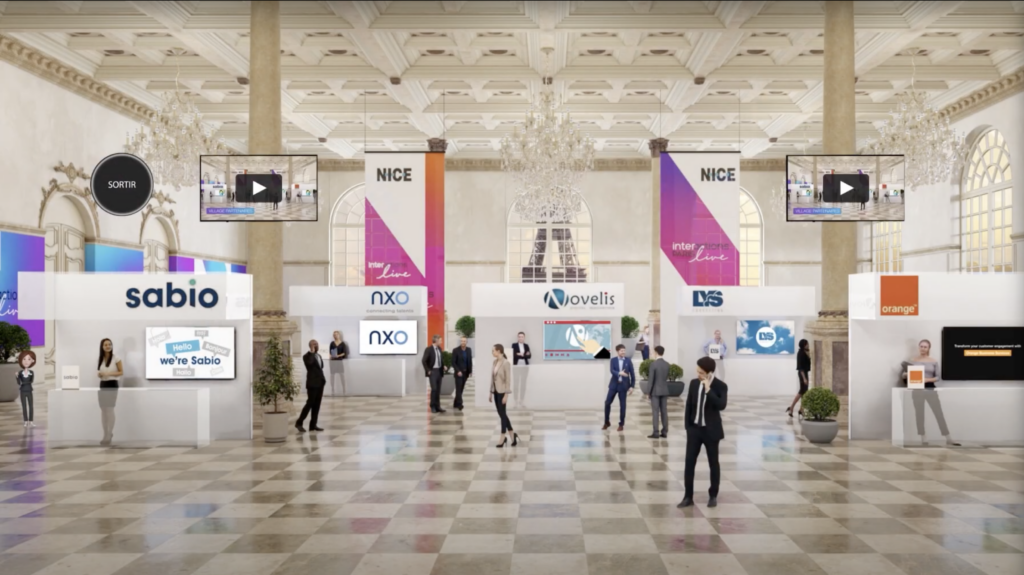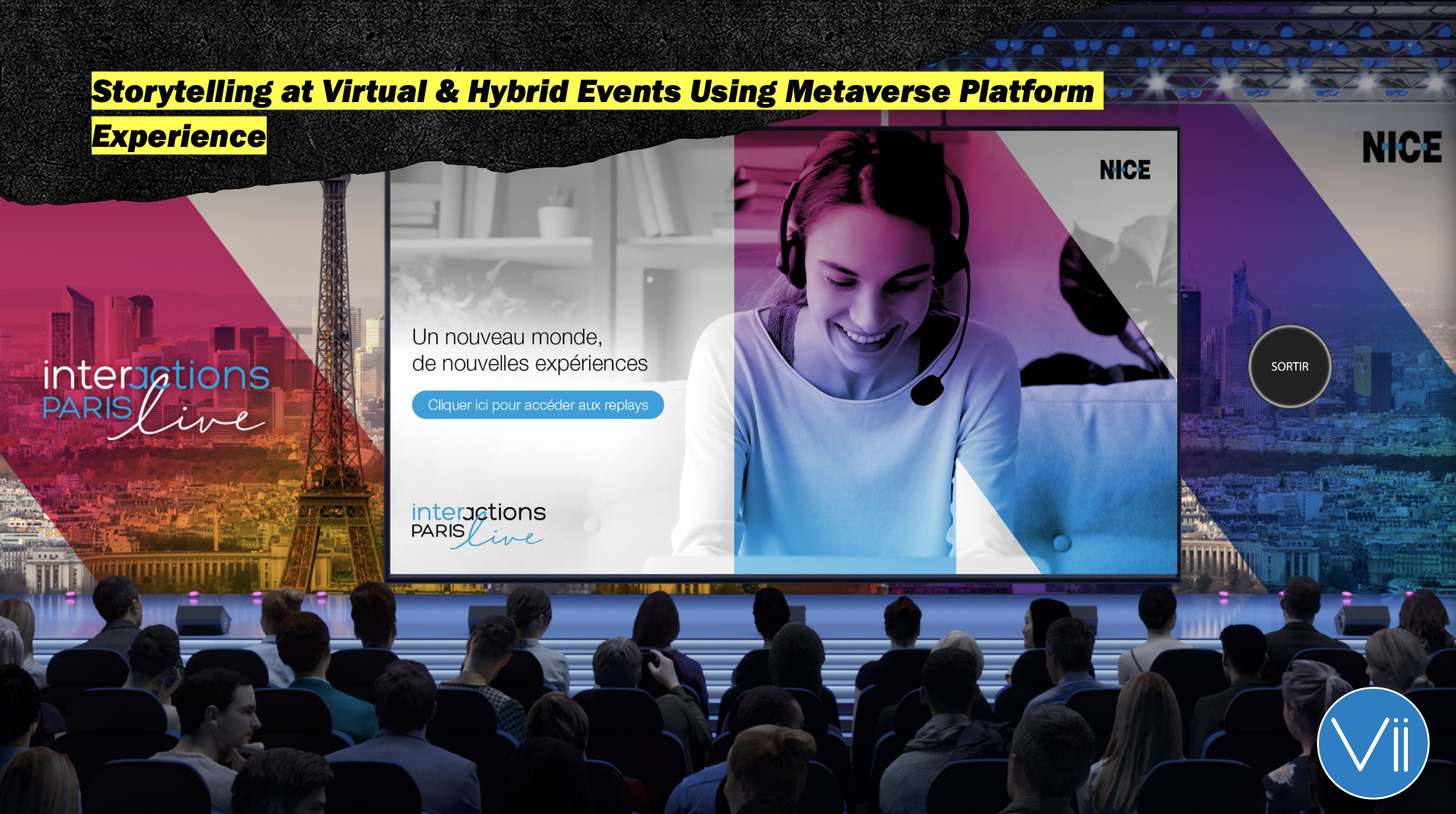In the Internet age, people are continuously searching for new innovative ways to connect with one another. While virtual events were booming in 2020, 2021 consolidated the gains and proved that virtual and hybrid events are valuable even under normal circumstances. According to the Search Engine Journal and data from LinkedIn, 92% of companies continued running virtual events even after physical events resumed. Furthermore, 46% are planning to host more virtual events in 2022 than they did in 2021. 60% of respondents claimed that they are willing to attend more virtual events in 2022.
Virtual and hybrid trade shows, team-building activities, conferences, seminars, and job fairs are still here and not going to get anywhere. As we can see from the data shared by the Search Engine Journal, virtual and hybrid events are still a thing in 2022. So, why not take them further than that?
Both virtual and hybrid events allow people a convenient way to connect and network. This state of affairs encourages multi-sponsors marketing events to switch to interactive virtual events. Today, companies and businesses try to find new ways to communicate with their audience online.
The most convenient way to get acquainted with virtual events is to check this brief video:

So, what are hybrid events?
In simple words, hybrid events contain features inherent to virtual and live events. Therefore, one arranges a live event and engages their audience in standard ways, and adds a virtual component. Thus, one allows their audience to participate in an event and be engaged regardless of their location.
To draw a clear line between hybrid events and live events with tech elements? The key is engagement. Thus, during a virtual event, participants will take an active part in the event instead of simply watching it on their PC or smartphone. This also allows them to give you live feedback concerning your virtual event engagement features and storytelling elements.
Large companies like Meta and Apple are paying a lot of attention to experiments with the metaverse. There are already many cases where the metaverse goes beyond gaming. Vii is already making progress in this regard. We allow our customers to arrange virtual or hybrid events in the metaverse that will become one of many great ways to engage attendees and achieve positive and measurable business results.
The Major Benefits of Using Metaverse in the Event Industry
We have already mentioned that the metaverse provides many benefits and value for the event industry. Here are several of the advantages:
1. The Wow Factor
The metaverse is very exciting to use. When using a quality metaverse to run a virtual event, one is guaranteed to generate a lot of buzz and positive emotions, as well as a higher participation duration and rate.
2. Reuse Capacity
An event conducted inside the metaverse has a great chance to last for long. The platform remains available and can be accessed and used for new events, adding new functions and elements. For example, Vii offers a metaverse environment available 365 days a year with an unlimited number of events. Stay connected with your audience and grow your community through Vii’s metaverse platform.
3. New Opportunities
The metaverse often involves different technologies. For example, fancy and customizable avatars, NFT, and other solutions. These technologies help to attract new investors and attendees, across all ages and backgrounds.
4. Unlimited space
Unlike live events, metaverse platforms have the potential to host an unlimited number of visitors while avoiding pushing, queuing, and wasting their time. All the content is available for all the attendees via one single access.
5. Customization
While offering almost unlimited space for a nearly limitless number of attendees, the metaverse also has tremendous potential for customization. It can be an imaginary place or a real-life venue filled with diverse interactions and features.
Altogether, the metaverse is a useful tool for organizing and running events aimed at professionals. It allows for creating hybrid events combining physical and virtual elements. Such a combination offers a very engaging experience for both online and live visitors and helps to promote the event.
Storytelling
There are plenty of virtual event engagement ideas, but before touching them, let’s discuss the cornerstone of every luxury virtual event – storytelling. Just like stories are the core of our lives, storytelling is the core of any virtual or hybrid event. In fact, hosts of every successful virtual event are professional storytellers and wrap up their attendees with endeavor engagement activities.
Storytelling is all about giving meaning to your audience. The best virtual events always engage their attendees with inspiring, entertaining elements directly related to storytelling. It is not just about new marketing trends but all about biology. When people share good stories, their bodies release oxytocin – a well-known love hormone. It is responsible for our feeling of empathy, trust, and compassion. Due to its effect, stories have such a large impact on our engagement.
Ways your virtual or hybrid event can benefit from storytelling:
By effectively applying storytelling when running your virtual or hybrid event, you can take your marketing strategy to a brand-new level. If you still remain in doubt, here are several ways your event can benefit from storytelling:
- Storytelling can attract more people to your event
- Establishing a connection between attendees themselves and the host of the event in particular
- Effectively introduce your audience to your company’s mission and values
- Inspire attendees to be proactive and boost their engagement
The Future of Event Networking
Interactive virtual events are becoming increasingly popular among event specialists. The further our technology advances, the more both hybrid and virtual events gain in popularity. Attending such events is a convenient, fast, and reliable way to arrange networking activities.
The growth of the virtual event industry that we have witnessed in recent years states that even though metaverse events may have their cons too, they are the future of the event industry and networking in particular. With all the advantages that come with metaverse events over the live ones and the data provided by Search Engine Journal and LinkedIn, it is reasonable to assume that this tendency will continue.
It becomes clear that the future of event networking is closely connected to the metaverse. It provides hosts with significant advantages over the traditional approach. Thus, virtual events inside the metaverse take storytelling to a new level and allow the creation of more engaging and interactive activities for attendees. Virtual events in the metaverse are also way more cost-effective when it comes to reaching larger audiences, as people can join the event regardless of their location.

